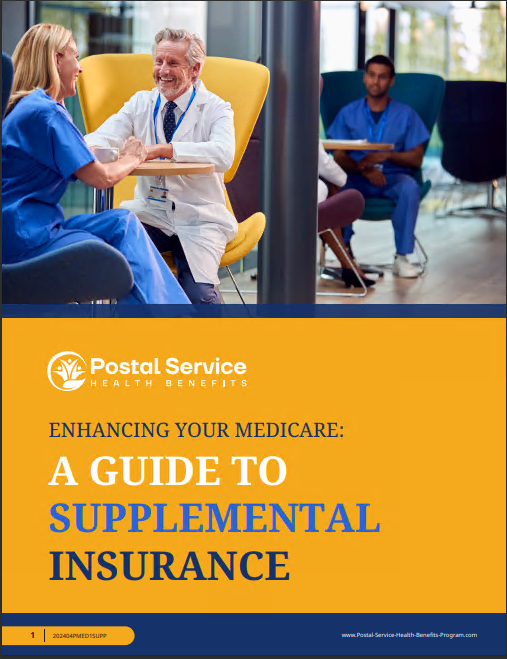Key Takeaways
-
Healthcare costs, including PSHB premiums, continue to rise due to inflation, medical advancements, and changes in federal contributions.
-
You can manage your healthcare expenses by reviewing your plan annually, using preventive care, and coordinating PSHB with Medicare if eligible.
Why Are Healthcare Costs Rising in 2025?
Healthcare costs have been on an upward trend for years, and 2025 is no exception. If you’re a USPS employee or retiree, you may have noticed increases in your Postal Service Health Benefits (PSHB) premiums, deductibles, and out-of-pocket costs. But why does this keep happening? Understanding the reasons behind rising costs can help you make informed decisions about managing your healthcare expenses.
Inflation and Rising Medical Costs
-
The cost of medical services, hospital stays, and prescription drugs continues to rise due to inflation.
-
Advancements in medical technology lead to better treatments but also higher expenses.
-
Healthcare providers adjust their rates based on increasing operational costs.
-
Increased labor costs, including wages for medical professionals, impact overall healthcare pricing.
-
The rising cost of medical supplies and pharmaceuticals further contributes to growing expenses.
Changes in Federal Contributions
-
The government covers a significant portion of PSHB premiums, but the percentage covered may fluctuate.
-
If federal contributions decrease or remain stagnant while costs rise, employees and retirees end up paying more.
-
The increasing cost of providing benefits to an aging population puts pressure on federal funding.
-
Adjustments to government contributions may result in higher employee and retiree cost-sharing.
Aging Population and Increased Healthcare Utilization
-
As more USPS retirees enroll in PSHB, healthcare usage increases, raising costs for the entire pool.
-
Chronic conditions such as diabetes, heart disease, and arthritis are more common, requiring more medical interventions.
-
More retirees require specialty care, rehabilitation, and long-term care services.
-
With longer life expectancy, retirees may use healthcare services for an extended period, further increasing costs.
Prescription Drug Price Increases
-
Drug manufacturers continue to raise prices, affecting overall healthcare spending.
-
Some PSHB plans offer lower copayments for generics, but high-cost brand-name medications remain expensive.
-
The introduction of new, high-cost specialty medications drives up overall prescription costs.
-
Changes in drug formularies and coverage tiers can also impact what you pay for medications.
How PSHB Premiums and Costs Compare in 2025
If you’re still working at USPS, you may see higher payroll deductions for your health benefits. Retirees may experience higher monthly premium costs, especially if they’re not enrolled in Medicare Part B.
What You Might Be Paying More For
-
Higher monthly premiums: These vary by plan tier and coverage level.
-
Deductibles and copayments: Many plans have adjusted these amounts for in-network and out-of-network services.
-
Out-of-pocket maximums: If you have high medical expenses, you could hit these limits sooner.
-
Higher cost-sharing for specialty services: Some plans have increased cost-sharing for outpatient procedures, hospital stays, and specialty medications.
-
Changes in covered services: Some benefits may have been reduced or adjusted, requiring more out-of-pocket spending for certain treatments.
What You Can Do to Manage Your Healthcare Costs
The good news is that you have options to help control your expenses and maximize your benefits. Here are some practical steps you can take:
1. Review Your Plan Every Year
-
PSHB offers multiple plans, and some may be more cost-effective for your healthcare needs.
-
Compare costs, coverage, and benefits each year during Open Season (November-December).
-
Pay attention to premium increases, deductible changes, and new benefits added to plans.
2. Consider Medicare Enrollment If You’re Retired
-
If you’re 65 or older and retired, enrolling in Medicare Part B could lower your out-of-pocket costs.
-
Some PSHB plans waive or reduce deductibles and copayments when combined with Medicare.
-
Medicare Part D may help reduce prescription drug costs, especially for high-cost medications.
3. Use Preventive Services
-
Many preventive services, like screenings, vaccines, and wellness visits, are covered at no extra cost.
-
Regular checkups can help detect health issues early and reduce long-term expenses.
-
Preventive care can help manage chronic conditions more effectively and avoid costly complications.
4. Stay In-Network When Possible
-
Using in-network providers ensures lower costs compared to out-of-network services.
-
Check your plan’s provider directory before scheduling appointments.
-
Some plans may charge significantly more for out-of-network services, so confirm coverage before seeking care.
5. Take Advantage of Telehealth Services
-
Many PSHB plans offer virtual healthcare visits at a lower cost than in-person visits.
-
Telehealth is convenient for non-emergency consultations and follow-ups.
-
Some providers offer online prescription refills, mental health support, and chronic disease management.
6. Ask About Generic Medications
-
If you take prescription medications, ask your doctor if a lower-cost generic is available.
-
Some plans offer lower copayments for generics, helping you save on drug costs.
-
Check your plan’s formulary to see if switching to a different medication could save you money.
7. Track Your Out-of-Pocket Spending
-
Keep an eye on your medical expenses to determine if you’re close to reaching your deductible or out-of-pocket maximum.
-
Using a health savings account (HSA) or flexible spending account (FSA) can help cover some expenses with pre-tax dollars.
-
Reviewing medical bills for errors and ensuring claims are processed correctly can prevent overpaying.
8. Consider Wellness Programs and Discounts
-
Some PSHB plans offer wellness programs with incentives for staying active and maintaining a healthy lifestyle.
-
Discounts on gym memberships, weight loss programs, and smoking cessation services may be available.
-
Participating in wellness initiatives may lower long-term healthcare costs by preventing chronic diseases.
What to Expect in the Future
With healthcare costs expected to continue rising, staying informed and proactive about your health benefits is essential. Here are some trends that may affect your costs in the coming years:
-
Potential adjustments to federal contributions to PSHB.
-
Continued changes in prescription drug pricing.
-
Possible expansions of telehealth and other cost-saving programs.
-
Medicare adjustments that may impact retirees’ healthcare expenses.
-
Growth in personalized medicine and specialized treatments, which may impact coverage options.
-
Increased employer and employee contributions toward health insurance plans.
Take Control of Your Healthcare Costs Today
Managing your healthcare expenses starts with understanding your plan and making informed choices. Whether you’re a USPS employee or retiree, reviewing your PSHB options, using preventive care, and considering Medicare integration can make a big difference in your costs. If you need expert guidance, get in touch with a licensed agent listed on this website for professional advice.






